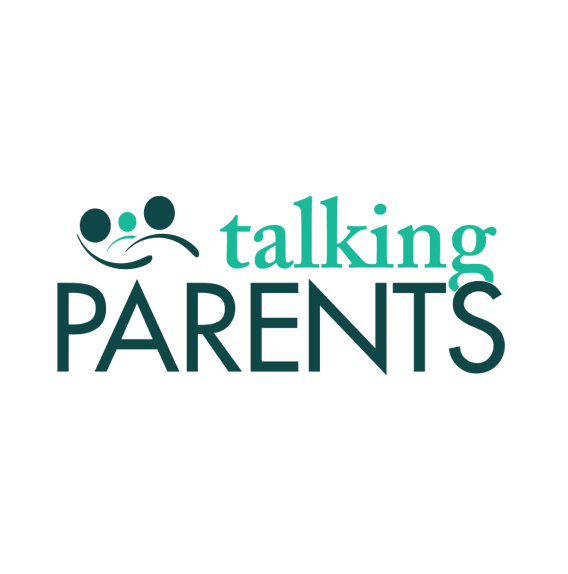Building a Healthy Co-Parenting Relationship for Your Kids
Building a healthy co-parenting relationship isn’t always easy, especially after divorce or separation. Despite this fact, the state of your shared parenting situation can have a large impact on your child, and whether this impact is good or bad is up to you and your co-parent.
This Trusted Parenting Network Article brought to you by

TalkingParents
Make Co-Parenting Easier with Better Communication
About TalkingParents
TalkingParents is an all-in-one co-parenting communication service that keeps interactions organized and documented. Parents who are divorced, separated, or were never legally married use this comprehensive solution to communicate regarding their kids.
Whether co-parents are dealing with low or high levels of conflict, TalkingParents allows them to manage messages, calls, schedules, expenses, and all other child-related information efficiently. By streamlining and recording interactions, TalkingParents aims to simplify the co-parenting journey through better communication, enabling parents to prioritize their children’s well-being.
How can an unhealthy co-parenting relationship affect your kids?
It is not whether you are married or divorced that affects your children as much as whether the relationship is low or high conflict. Research indicates that parental conflict can have a negative impact on your child’s:
- Mental health
- Adjustment
- Success in school
- Future relationships
- Identity
- Self-esteem
The bottom line here is that an unhealthy co-parenting situation can be just as damaging to your child as a toxic marriage or relationship. 7 signs of an unhealthy co-parenting relationship include:
- Always arguing
- Not communicating at all
- Putting the kids in the middle
- Badmouthing each other in front of the kids
- Trying to control what your co-parent does with the kids when they’re in their care
- Withholding information about the kids from each other out of spite
- Making important decisions about the kids without consulting each other
It’s important to recognize the signs of an unhealthy co-parenting relationship so you can get help and shield your children from potential consequences.
How can a healthy co-parenting relationship benefit your kids?

On the flip side, sustaining a healthy balance with your co-parent can do wonders for your child. Research shows that shared parenting is linked to many favorable outcomes for children, so if you can foster a healthy relationship with your co-parent, your kids are likely to experience positives such as:
- Feeling more secure
- Benefiting from consistency
- Better problem solving
- Having a healthy example to follow
- Being more mentally and emotionally stable
4 tips to help you build a healthy co-parenting relationship
Just like anything worthwhile, building a healthy co-parenting relationship takes time and effort, but you and your kids will benefit from it immensely. Here are 4 tips for creating a stable co-parenting environment for your and your children’s sake:

1. Create a comprehensive co-parenting plan
A parenting plan is one of the most critical documents you will ever put together, and it maps out the goals, attitudes, beliefs, and schedules that you and your co-parent will abide by. The guidelines and parameters outlined in this agreement will help your child receive consistent parenting and routines in both homes. A comprehensive parenting plan should include the following:
- The custody arrangement
- Time schedules (including overnight stays, day-to-day routines, holidays, and more)
- Drop-off and pick-up schedules
- Financial responsibilities
- Medical care
- Education
- Communication parameters
- Travel and relocation expectations
- Amendments
- Any other general rules and guidelines

2. Set healthy boundaries
Setting healthy boundaries in co-parenting is a way to respect both parent’s time, energy, and privacy while raising children together. Boundaries can create realistic expectations in shared parenting relationships, which can help you maintain balance and reduce conflict. 5 healthy boundaries you and your co-parent might consider putting into practice include:
- Not speaking poorly of your co-parent in front of your kids
- Never asking your child to choose between you and your co-parent
- Keeping your personal life private from your co-parent
- Being supportive of your co-parent’s role in your child’s life
- Sticking to the parenting schedule as much as possible

3. Communicate through TalkingParents
Whether your co-parenting relationship is amicable or high conflict, conducting all communication and coordination through a dedicated co-parenting service can help foster a healthier relationship. Keeping all interactions organized and documented can reduce stress in day-to-day communications with your co-parent while keeping you both accountable for your words and actions. To help support and facilitate this, TalkingParents offers:
- Timestamped, searchable messages that can’t be edited or deleted
- Recorded and transcribed phone and video calls
- A Shared Calendar that keeps all edits and deletions documented
- An information bank to record details that need to be shared between homes
- A payments tool to manage and track all shared expenses
- And more!
Additionally, all interactions within TalkingParents are saved to Unalterable Records, which can be used as evidence with an attorney and in court. Because these Records are court-admissible, co-parents are often encouraged to be more civil in their communications, which is key to minimizing conflict and building a healthy relationship.

4. Always put the kids first
Last, but certainly not least, your children need to remain the focal point of all decisions in your co-parenting relationship. You and your co-parent should strive to keep all conversations and coordination as child focused as possible. Kids should be shielded from adult conversations surrounding the co-parenting situation and kept out of conflict at all costs. This child focused mindset will help set the stage for your shared parenting relationship, benefiting both you and the kids. Always putting your children first is perhaps the most important step to building a healthy, balanced co-parenting environment for all involved.


